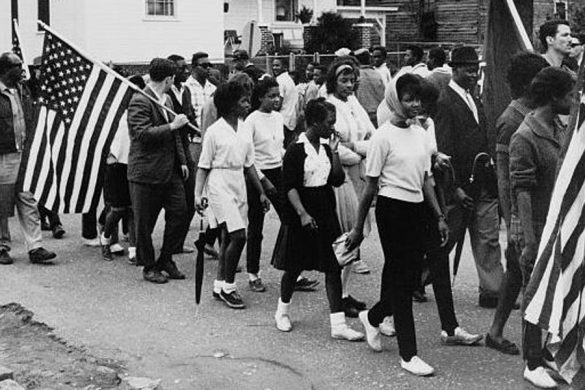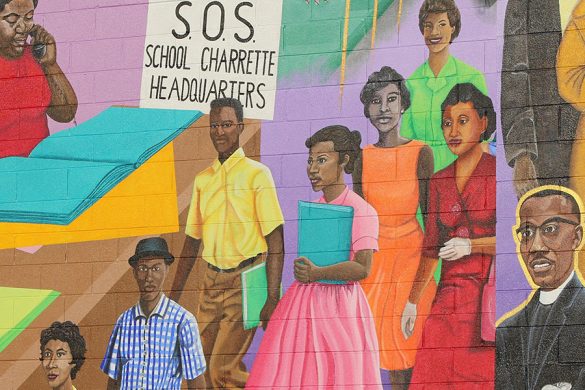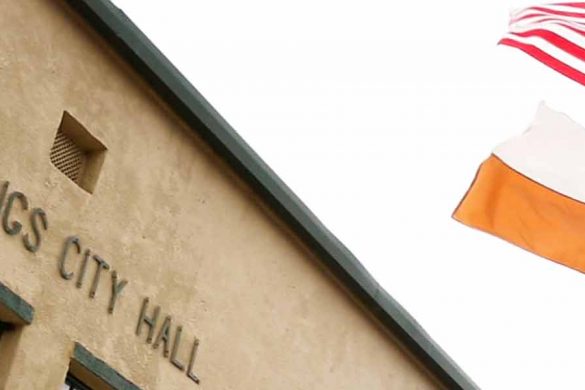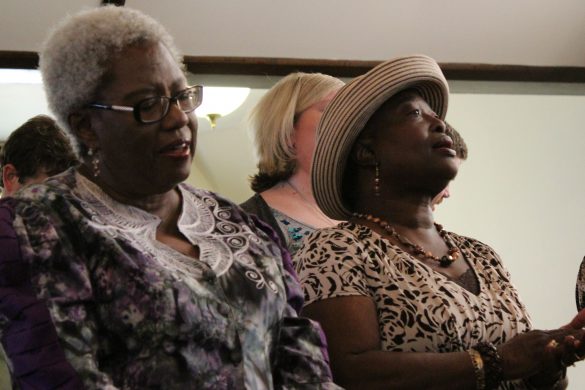LOS ANGELES – On June 7, Francisco Medina accompanied three friends to the polls to cast ballots in California’s presidential primary election.
He started the day at 7 a.m. with a friend in his home city of Huntington Park. Then, he went to Santa Monica. He finished in Bell Gardens.
Medina’s friends asked him for information on the candidates, from assembly members to the presidential candidates.
Medina can’t vote because he’s an undocumented resident, but the day made him feel like he had voted, he said.
“I may not be voting, but I can still influence people,” he said.
Officials in September appointed Medina, 30, to Huntington Park’s Neighborhood Council as the health and education commissioner. According to a city ordinance, two nonresidents are allowed to serve on the city commissions. Commissioners usually receive a monthly stipend, but because of Medina’s legal status, he doesn’t get paid “one penny,” he said.
Huntington Park is a working class community of nearly 60,000 residents near Los Angeles. About 98 percent of Huntington Park’s residents are Latino, and 50 percent of them are undocumented, according to the U.S. Census Bureau.
“Politics, for me, is a way to actually make a difference,” he said. “Politics is a way to influence people and to actually improve the quality of people’s lives.”
Medina was born and raised in Mexico City. He came to the U.S. when he was 16 years old with the goal of finishing high school and finding a job. A counselor at his high school encouraged him to apply to college because he was a good student who had potential, Medina said.
He was accepted into college, but he didn’t qualify for financial aid. He worked at a car wash and made less than minimum wage at the time.
Eventually, Medina earned a full-ride scholarship to California State University, Dominguez Hills, where he graduated with degrees in sociology and Chicana/Chicano studies, he said.
“When I became a full-time student, people started telling me I had time to focus on my goals, but it was never about me it was always about the community,” Medina said.
Once in college, Medina organized and advocated for undocumented students. He volunteered with political campaigns and earned a trip to the state Capitol in Sacramento.
There, his life changed.
He met then-Sen. Gil Cedillo. Medina calls him a champion for undocumented immigrants. Cedillo authored the California DREAM Act, which allows undocumented students to receive financial aid for universities, and he worked relentlessly to pass a bill that allows undocumented migrants to obtain driver’s licenses.
The two exchanged numbers, which lead to a call from Cedillo on Christmas Day offering Medina a spot on his team.
Medina served as an unpaid internship for two years with Cedillo’s office.
“It was a beautiful experience,” Medina said. “I was dressing formally, going to events and sometimes, they let me speak on behalf of Senator Gil Cedillo. I started thinking and acting like a politician, but I don’t see myself as a politician. I’m a public servant.”
When Medina was appointed to Huntington Park’s advisory commission, he said some people were angry.
Residents of Huntington Park and neighboring cities said he shouldn’t represent the city if he is undocumented, Medina said.
But to Medina, a person’s legal status doesn’t determine their involvement with the community.
“I always tell people regardless of who you are or where you are coming from, this is your community. This is where you live. You pay taxes. You have your kids who go to school here,” he said. “You have the right to know and ask questions to your city council member.”
Medina said he’d like to see more undocumented residents in local government: “I don’t want to be the first one and I don’t want to be the last one.”
Come back Aug. 20 to see the full News21 report on “Voting Wars.”





